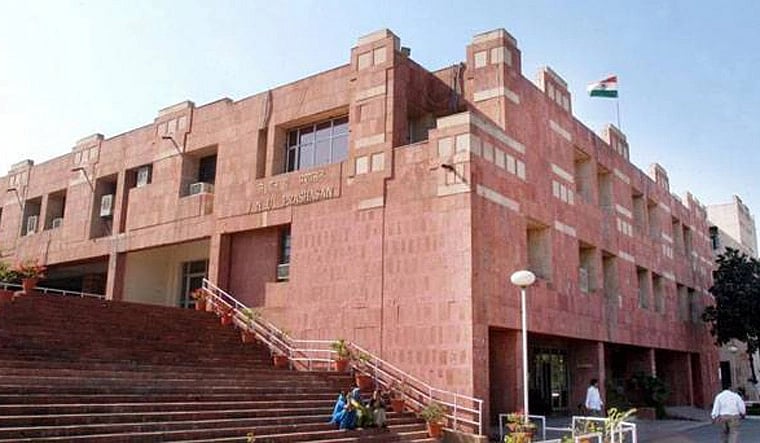A report released by the Jawaharlal Nehru University (JNU) in New Delhi earlier this week has claimed that the influx of illegal migrants from Bangladesh and Myanmar has caused a ‘notable increase of the Muslim population’ in Delhi-NCR, altering the socio-political and economic fabric of the national capital.
According to News18, the 114-page report reveals how such an influx of undocumented Bangladeshi and Rohingya settlers has disrupted the city’s economy, strained its resources, and also strengthened criminal networks. Recently, ahead of the Maharashtra elections, a report was released by the Tata Institute of Social Sciences (TISS), which echoed a similar study on the impact of illegal Bangladeshi migration in Mumbai.
Key Findings Of The Report
The report titled ‘Illegal Immigrants to Delhi: Analysing Socio-economic and Political Consequences’ was made by a team led by Professor Manuradha Chaudhary, dean of students at JNU. The team also had senior professors from TISS.
The report reveals how political parties along with accomplices facilitate the fake voter registration of these illegal settlers, raising concerns about democratic manipulation and electoral integrity.
The report has also emphasised the economic impact of the influx of illegal immigrants in the city. It talks about how the presence of these unauthorised settlers has intensified job competition, especially in the low-wage working sector. The report describes how their exclusion from the tax system has potentially burdened the city’s legitimate workforce.
As reported by News 18, the JNU report also highlights overcrowding in the capital city because of the migrants. This, it says, leads to variety of issues like environmental degradation and straining of public services like education, healthcare, water, and electricity.
“These migrants often settle in overcrowded neighbourhoods such as Seelampur, Jamia Nagar, Zakir Nagar, Sultanpuri, Mustafabad, Jafrabad, Dwarka, Govindpuri and many more, where they strain resources and disrupt local social cohesion,” the report stated.
It further added, “The historical context of illegal immigration from Bangladesh dates back to the 2017 Rohingya crisis, during which millions of refugees fled to India. Over the decades, many of these migrants settled in Delhi, creating dense pockets of undocumented populations.”
The report also added how “informal networks” of religious preachers, brokers, and middlemen facilitated the influx of migrants by assisting them with fake identification documents.
